‘PAY DIRT’: THE STORY OF SUPERCROSS
After a hit theatrical run with over 300 screenings, the film, Pay Dirt: The Story of Supercross is soon to be available on major streaming platforms, including AppleTV/iTunes, Amazon Prime Video and YouTube, among others. Poised to hit the platforms this Friday, July 18, Paul Taublieb – the director, writer and producer – spoke candidly to Transmoto’s Eric Johnson about the new film’s inspiration, characters and creative process…
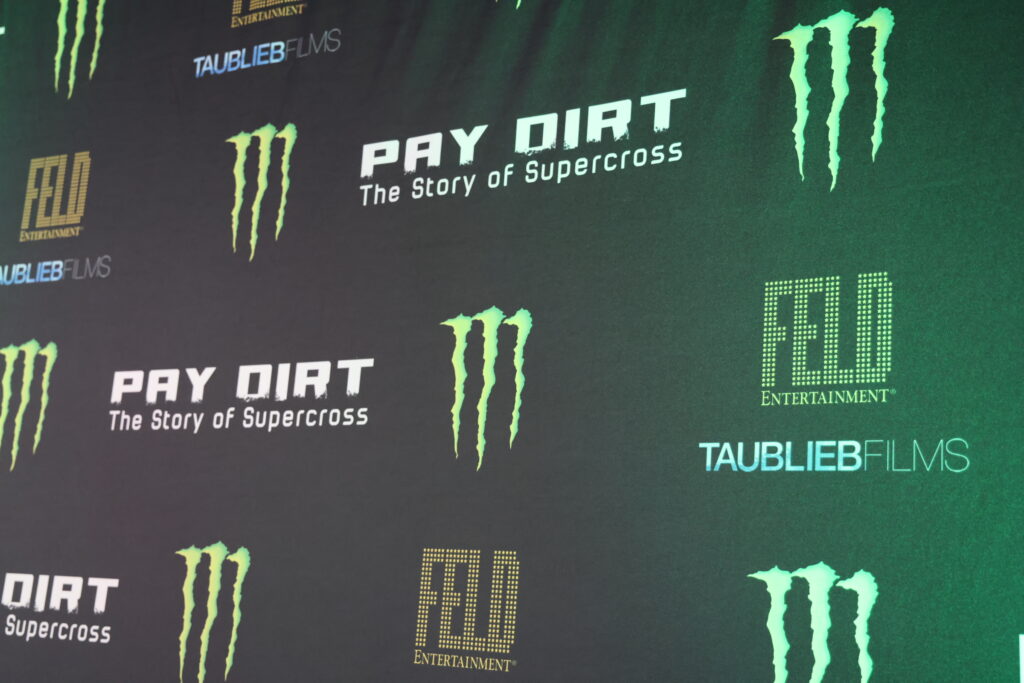
“We had a great distributor in a company called Monkey Wrench Films, who got it out there,” said Taublieb on Monday afternoon from Los Angeles. “They did it the independent way, the hard way. Kind of like how the privateers are. It ran theatre by theatre, chain by chain; it wasn’t a wide release. It kept plugging away and we got a huge amount of exposure. We got incredible reviews from many people. However, the film wasn’t an easy thing to find. It didn’t play in a normal fashion, even though it was all over the country. Now it is finally coming to the digital platforms, and it rolls out on Friday, July 18. It’ll be on AppleTV/iTunes, which is great company to be in when you look at the work Apple has done as part of that platform. It’ll be on Amazon Prime, it’ll be on YouTube, it’ll be on Vimeo and probably some other platforms as well. These are the main ones. Between iTunes and Amazon, anybody that wants to see the film can purchase it, download it, rent it or own it, and finally the entire world will be able to see the film that people have been talking about and people have been reading about and people have been hearing about. The film is now going to be available on all these platforms.”
“Every movie I make comes down to: What is it really about? In this case, it was that Supercross is the toughest, craziest, gnarliest and most underappreciated and least understood sport on the planet.”
For those who may have yet to view Pay Dirt: The Story of Supercross, Taublieb took some time to address the true spirit of what the film centres upon.
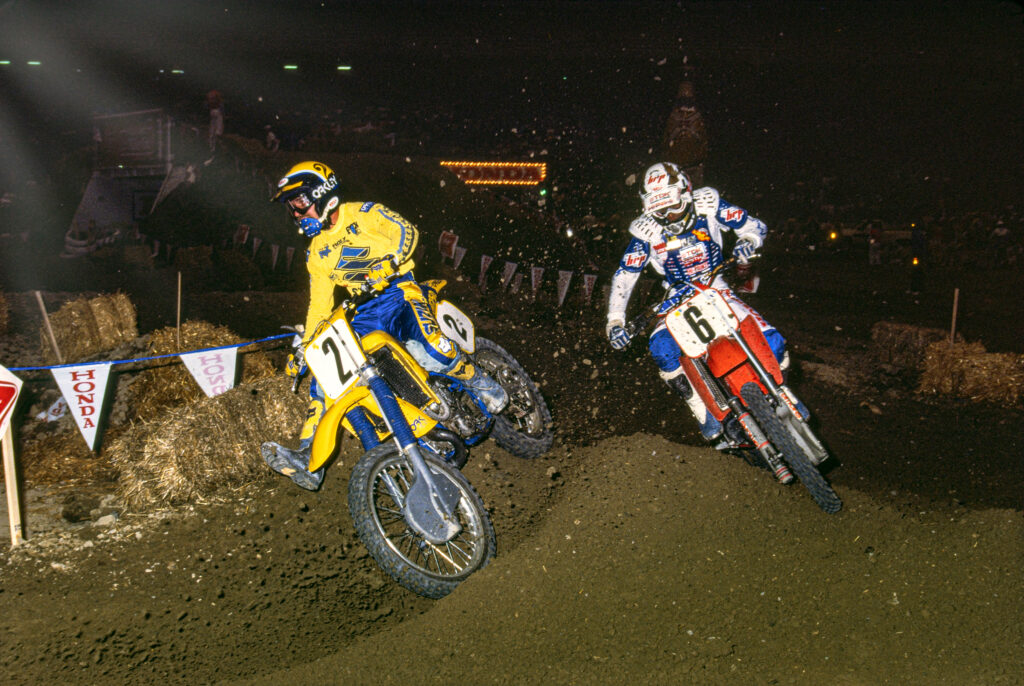
“The spirit of Pay Dirt, or the idea, comes down to one thing,” explained Taublieb. “Every movie I make, and I’ve made quite a few of them now, comes down to: What is it really about? You spend a lot of time coming up with what is the one thing. In this case, it was that this is the toughest, craziest, gnarliest and most underappreciated and least understood sport on the planet. Once I had that idea in my head, it was a personal thing. I’m a sports fan and I was one of the creators of the X Games and I worked for them for 16 years. I’ve made feature films and documentaries and so on. So, for me, it was like, ‘Wait a minute. What is this sport?’
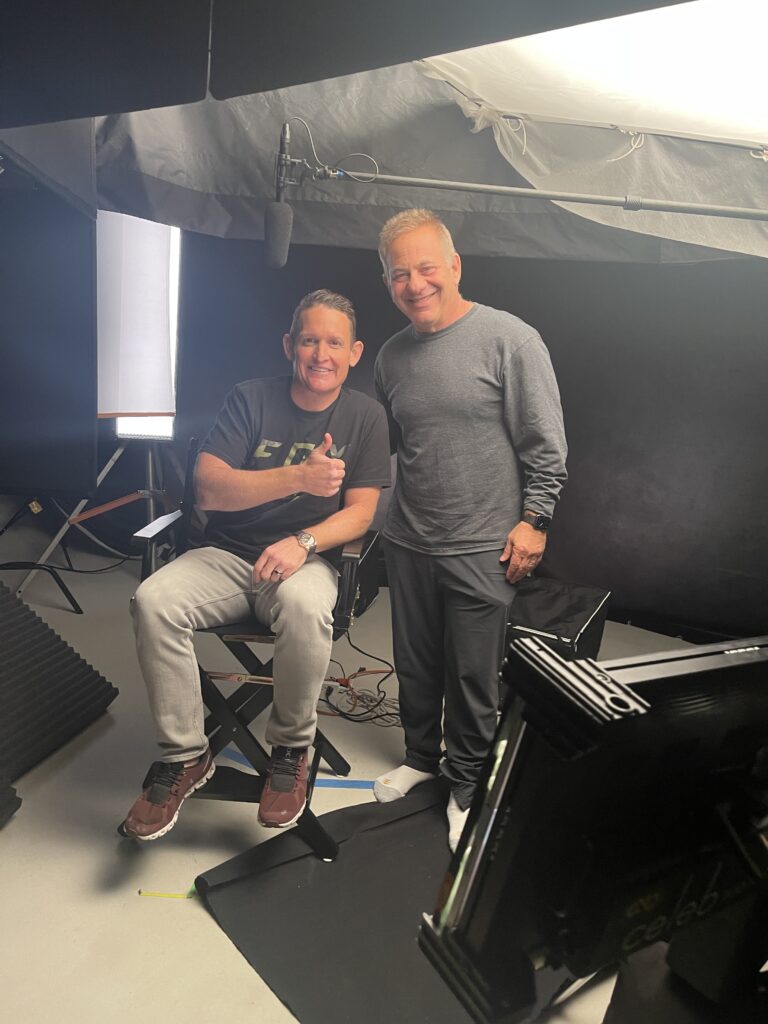
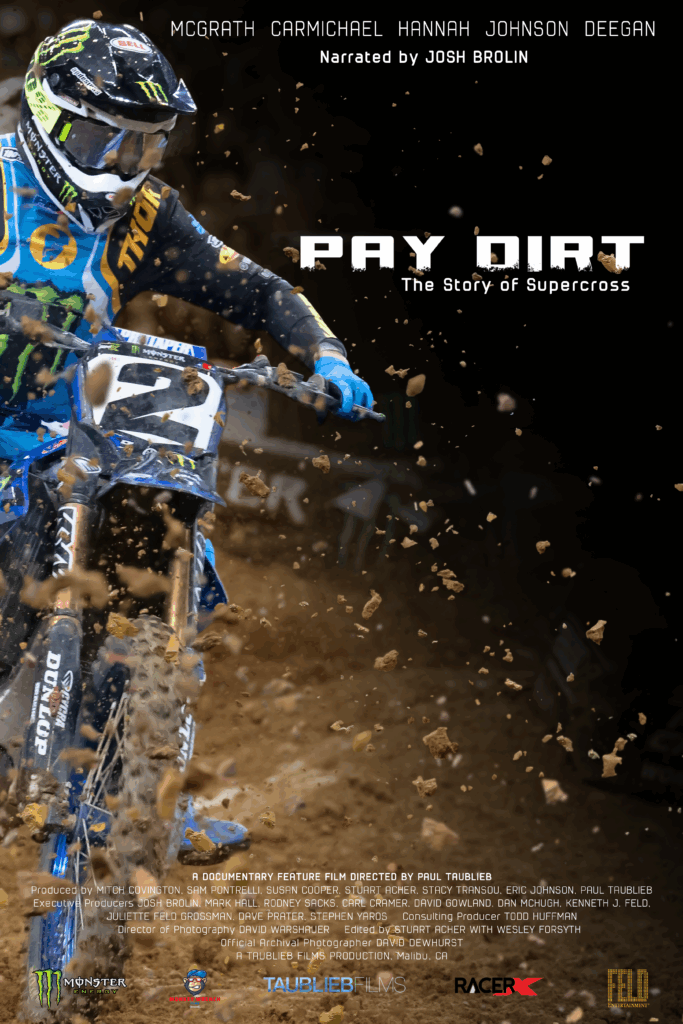
“I had been involved in a parallel world doing freestyle motocross for many, many, many years. Frankly, I was a little bit dismissive of supercross. It was the square sport of racing. I was the X Games guy where the future was. It kind of was unfair to supercross because it was just as gnarly as the freestyle motocross. And it was more intense, and it was more dedication and it was more history and it was more tapestry and it was more culture and there were more great stories. I became exposed to that and that’s what really inspired me on Pay Dirt. It was how do we tell this heartfelt story of these characters. And again, not a linear history. And that was a challenge because documentaries tend to be in a straight line timewise. It was really about, ‘How do we find these different stories and in-depth explorations of different chapters woven together?’ It was that inspiration.
“Monster’s involvement is not about sending a logo over and then hosting people in a suite. They do that, but they are deeply involved in the riders, the sport, the culture, how it’s run, what goes on.”
“What you need is that spark in anything you do. You need to have this moment and this epiphany. And for me, it was being on the stadium floor at supercross and seeing the sport up close and seeing the pits and seeing the characters. And so then I started learning about it and talking to Eric Johnson and Mitch Covington and Sam Pontrelli and Mark Hall, obviously all Monster Energy people. With Monster Energy, their dedication to the sport is authentic. Certainly, it’s a business consideration, but it is rooted in authenticity and true passion for the sport. If you understand Monster’s involvement, it’s not about sending a logo over and then hosting people in a suite. They do that, but they are deeply involved in the riders, the sport, the culture, how it’s run, what goes on. They don’t control it. I don’t want to misstate that. Their involvement is legitimate and authentic and that’s where the film becomes an extension, and that’s why we did Pay Dirt.
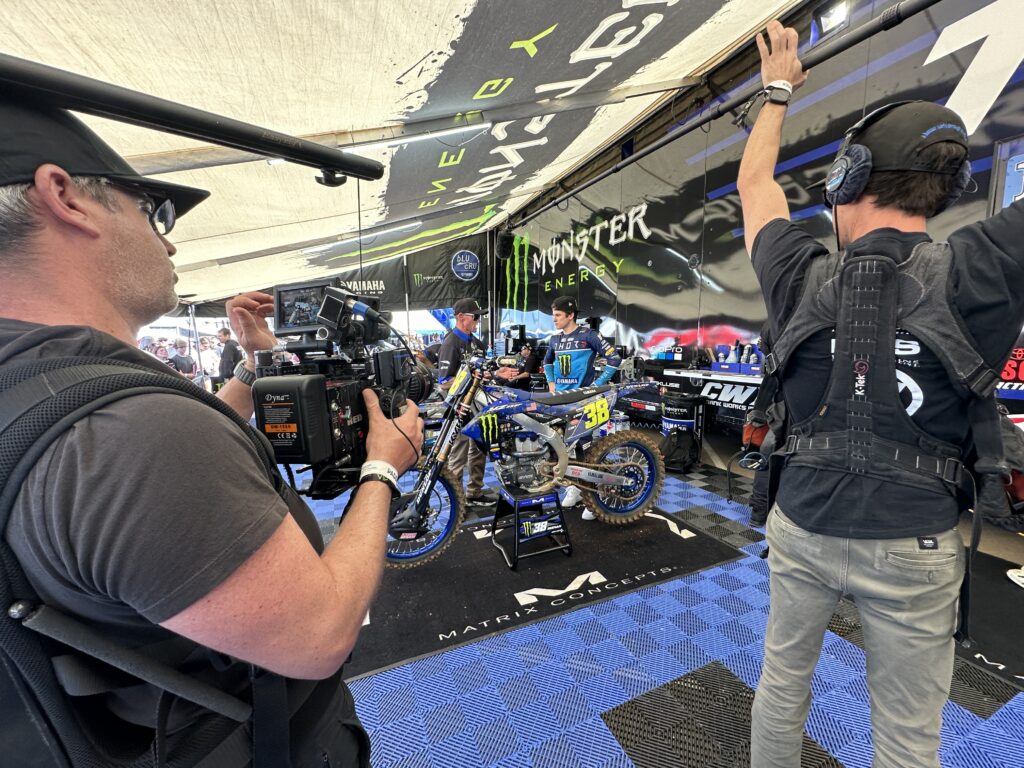
“We obviously did Unchained and Blink of an Eye and I had a series of big wave movies. These are all things that Monster Energy said, ‘Go make the film. ’That’s the other thing that I want to say. As an independent film maker, they are the dream company. They say, ‘We do what we do, you do what you do.’ So, I’ve been very, very fortunate and very, very grateful to be able to make these feature documentaries. I also want to say that I believe Josh Brolin brings the poetry. You can’t talk about this movie without talking about him. Josh as a narrator is extraordinary. But it all goes back to authenticity. And once you learn about, ‘Oh my God, their heart rates are 180 beats a minute for 20 minutes…’ And you talk to someone like Doctor G, and you hear about the impact and the injuries and the grit and the determination of the supercross riders and you go, ‘This is a universal story.’ And that’s what we came across. Then you find these incredible human stories.”
“There is so much drama because the stakes are so high. And drama is about what people do under pressure and how they handle conflict. That reveals character.”
In creating Pay Dirt, Taublieb adhered to a fundamental objective of “making the cast come alive as deep, three-dimensional human beings, not motorcycle racers.”
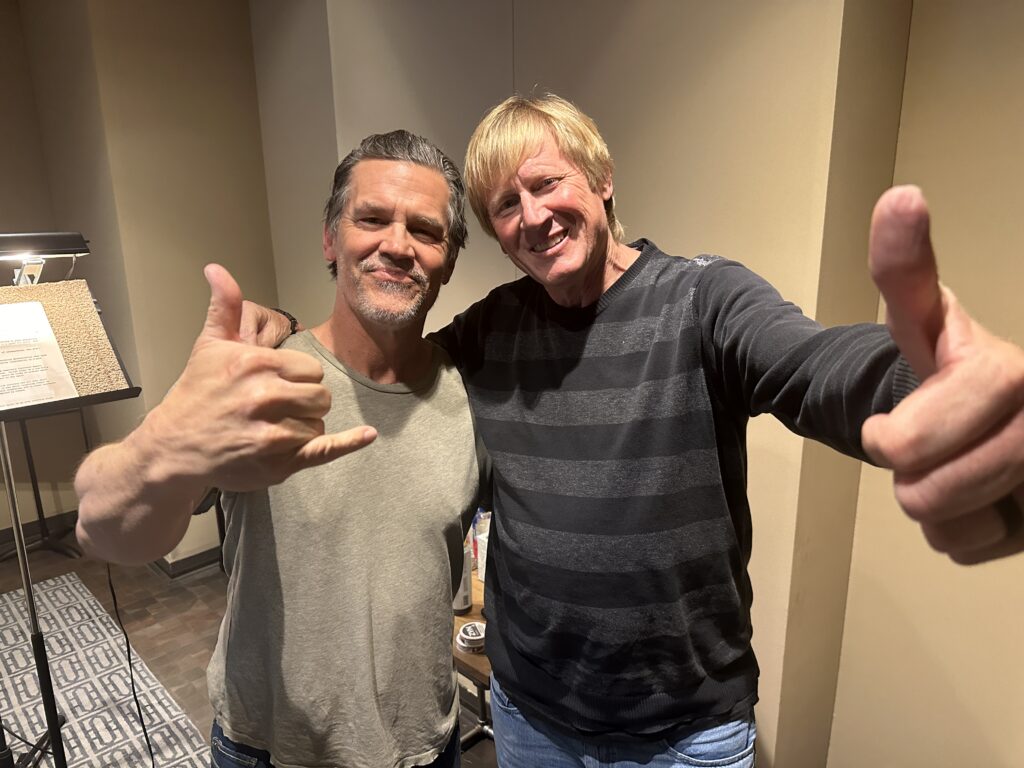
“The other underpinning concept of everything is that people care about people,” said Taublieb. “The human element. In this sport, because there is so much drama and because the stakes are so high and because it is so difficult and because it is so competitive and making it to the elite level is such a challenge that it has, intrinsically and inherently, committed and competitive people involved. And when you have that formula, you end up with drama. And drama is about what people do under pressure and how they handle conflict. That reveals character. What you have in these different stories that we tell, from Bob Hannah all the way to Haiden Deegan, is people who have these fascinating stories. Nobody gets to the top of the world of supercross without a lot of blood, sweat and tears and guts and pain and suffering and triumph. All those elements are what leads to the top of the sport. And all these people have it because it is so difficult and because it is so dangerous and because it is so expensive and because it is so complex.
“I believe Josh Brolin brings the poetry. You can’t talk about this movie without talking about him. Josh as a narrator is extraordinary. But it all goes back to authenticity.”
So we follow this in Pay Dirt to try show that by going to Loretta Lynn’s. The industry knows about it, but the world at large when they see the section about Loretta Lynn’s and these young kids and what they are doing and the stakes. Then we tried to show other sides of the sport which a lot of people don’t know about. We have a whole section on the privateer. We follow one guy. We humanize one individual near the end of his privateer journey in trying to make the show. You can see what happens with him. You don’t see that story very often. And we take famous people and show them in a different way. It’s not just about winning.
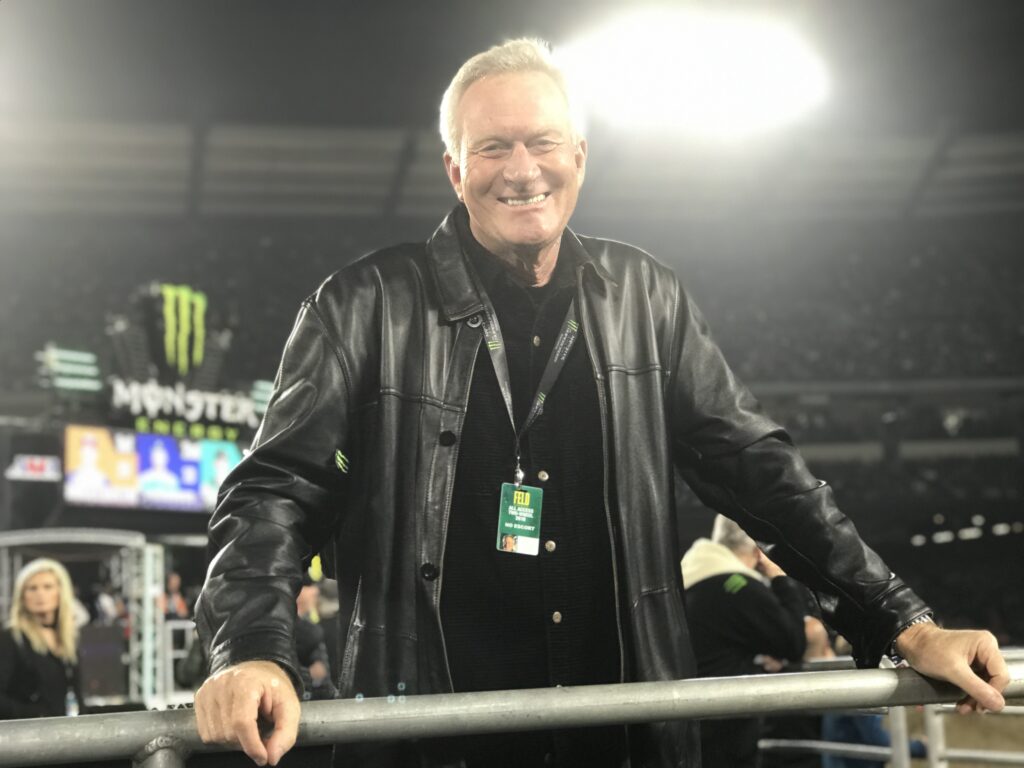
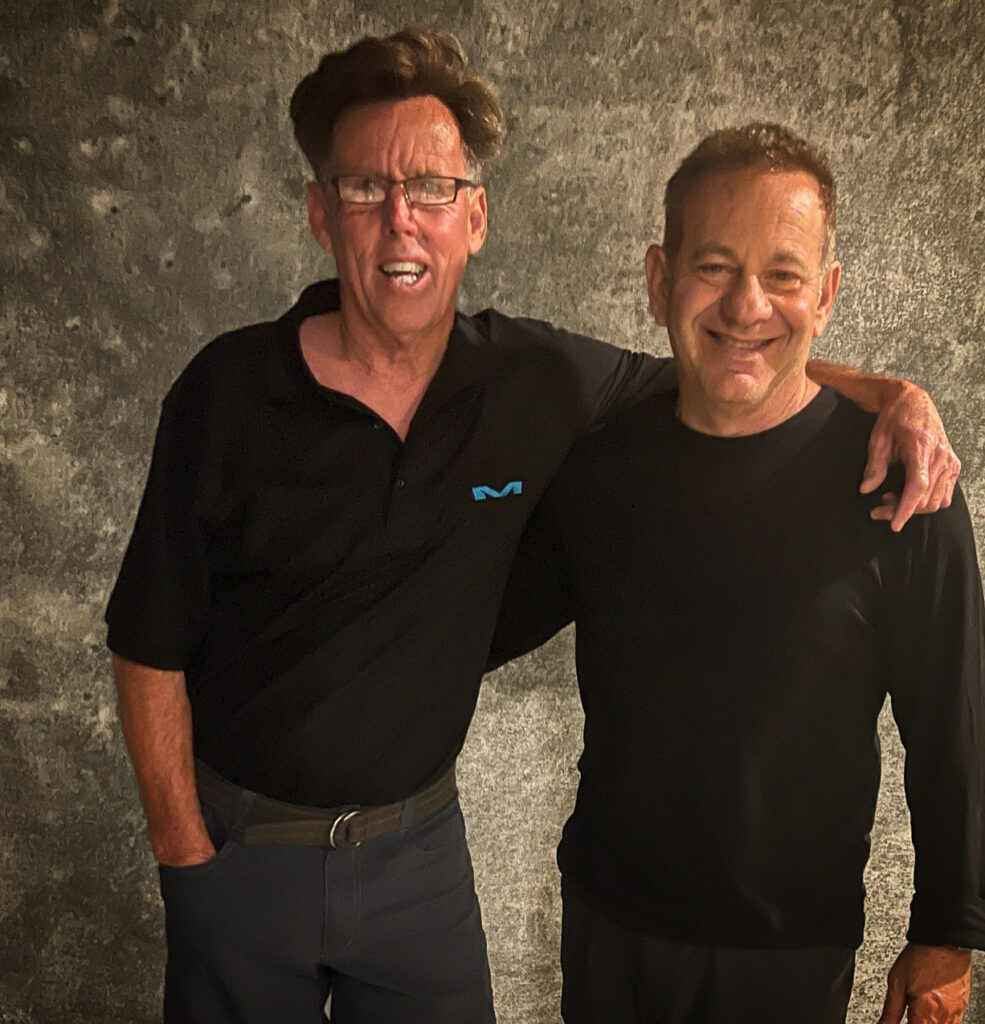
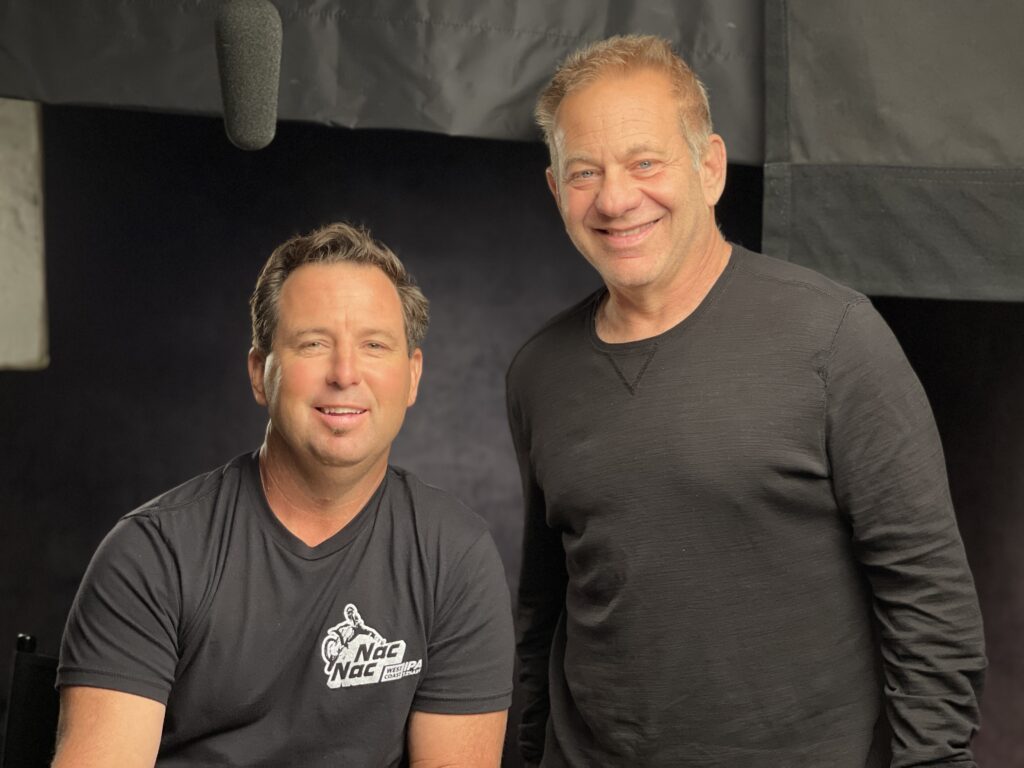
A great example is how do you tell the story about Jeremy McGrath? Clearly the greatest supercross racer of all-time. Look, he’s a very nice person. His racing was clean. He didn’t make a lot of enemies. As a dramatist, how do we frame this so it’s not just a guy going over the finish line jump and waving and the fans going crazy. So, it was putting him a context with someone who was kind of his rival and who was his rival in Jeff Emig. It was their battles and their issues. We brought out a side of McGrath which people don’t really see. And Emig was thrilled to talk about it. You have to put him in context, and Emig allowed us to put McGrath in context and tell the McGrath story without just sort of talking about how many races he won. That’s not human. That’s just chequered flags and encyclopedia.
“There is so much drama because the stakes are so high. And drama is about what people do under pressure and how they handle conflict. That reveals character.”
Jeremy McGrath and Jeff Emig and their battles and their issues illustrated so much. We brought out a side of McGrath which people don’t really see. Emig was thrilled to talk about it. You have to put them in context. You don’t just want chequered flags and encyclopedia stuff and we don’t do encyclopedia. We’re doing story telling. One of the other big things was telling the story of Bob Hannah. He was very difficult to get and one of the reasons the film was delayed. Finally, he agreed to do it because he doesn’t really care. His legacy is cemented, and he’s got a great personality. He laid it on the line in a super-fun way that’s never been seen before. I had a number of the people from the industry come up to us after the screening and say, ‘We never seen this human side of the sport before.’ That was the goal. We’re authentic to the fans. The whole key it to work on multiple levels and that’s what I think we achieved.”
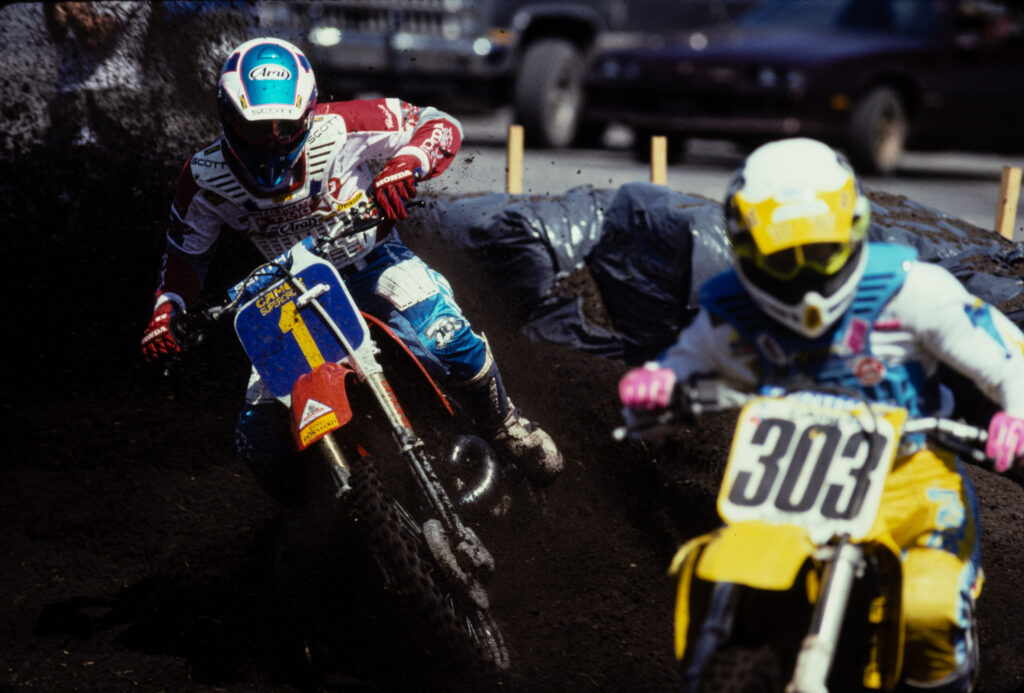
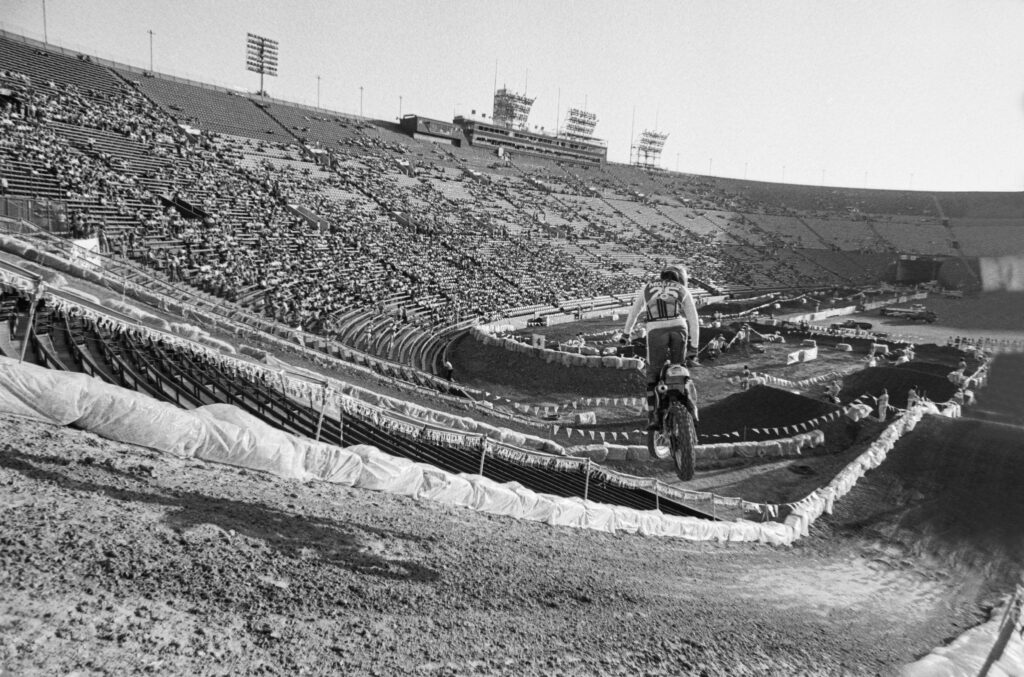
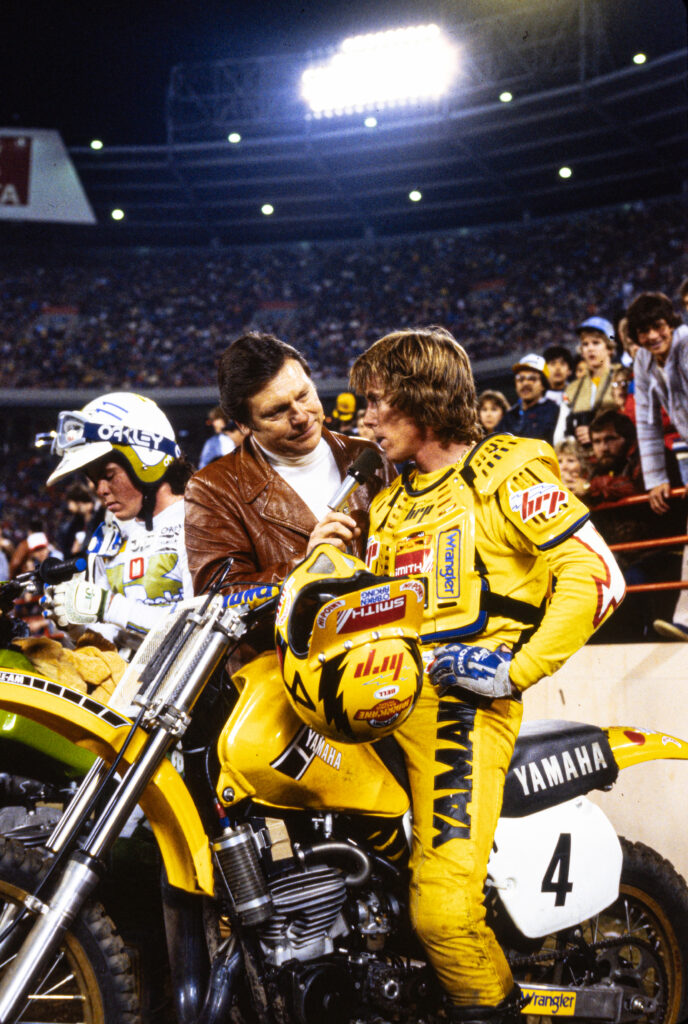
Taublieb went on to speak about where Pay Dirt: The Story of Supercross is in its life trajectory as a major film.
“The independent film maker is a funny little world,” said Taublieb, producer of a host of Emmy Award-winning documentaries through his directorial career. “We were very fortunate, and it was very satisfying for me as a filmmaker in that the way we shot the film with the action sequences that we got a theatrical release. We played at about 350 screens. Mainly around America, but also in Australia and some screens in Europe and some in South America. Screens all around the world. And people got to see the sport in a way that nobody has ever witnessed before in a movie theatre.
“From Bob Hannah all the way to Haiden Deegan, they are people who have fascinating stories. Nobody gets to the top of the world of supercross without a lot of blood, sweat and tears and guts and pain and suffering and triumph.”
I know every filmmaker probably says the same thing. The guy who makes Dune or the guy who makes Star Wars says the same thing: See it in a theatre, don’t watch it on TV. And it was thrilling to see Pay Dirt in the theatre. I was editing and looking at the same thing on a computer monitor for a long time and seeing it on a giant screen was awesome. You can finally see the film. If you heard about it and didn’t get to the theatres, now is the time for everybody who wants to see the film to see it. If you love the sport and if you’re a racing fan, you’re going to love Pay Dirt: The Story of Supercross. Seeing the film on the big screen us fantastic and people were very fortunate to see it on a big screen, but now the world gets to see the film.
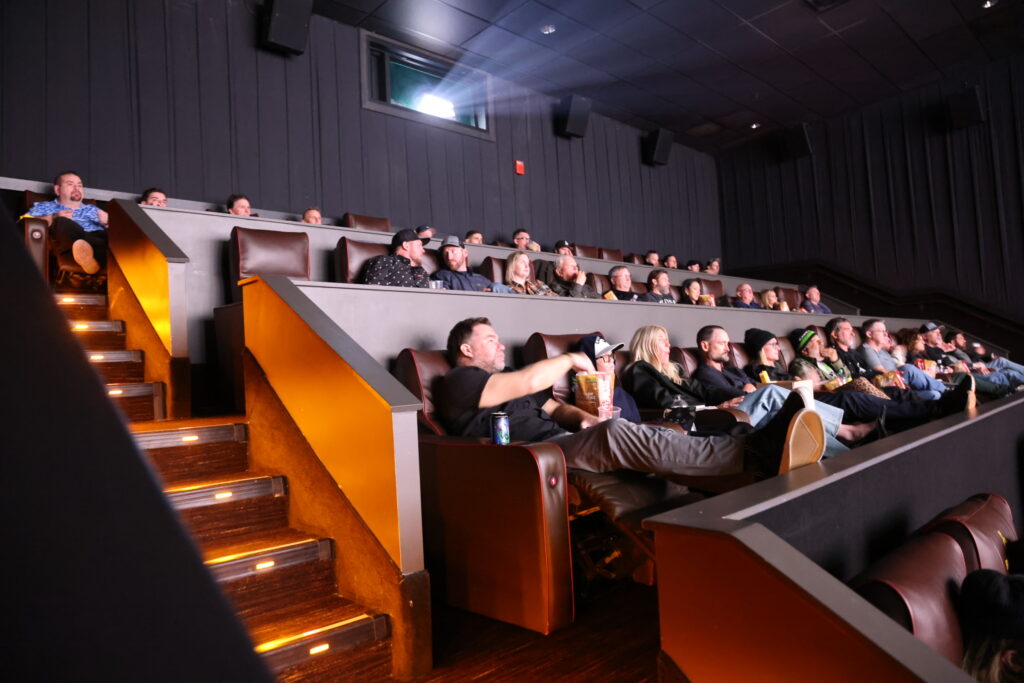
“Emig allowed us to put McGrath in context and tell the McGrath story without just sort of talking about how many races he won. That’s not human. That’s just chequered flags and encyclopedia.”
The media landscape is changing. Movie theatres are still there, and we still love going, but look, we understand that we live in a streaming world. Now Pay Dirt is finally going to be available to everybody. A lot of places to see it. Finally, it’s viewable for everybody. That’s really the big news and that’s the life cycle of a film from theatrical to the platforms. That’s what we are seeing now. What I’m excited about now is a lot of people were frustrated because they didn’t get to see it on a big screen. Theatrical is difficult. We all lead busy lives and getting to the movie theatres is tough. It’s very, very exciting to me that finally everybody who wanted to see this film finally can see the film. For a couple bucks you can buy it at home, you can watch it and own it and it is now available to everybody.”
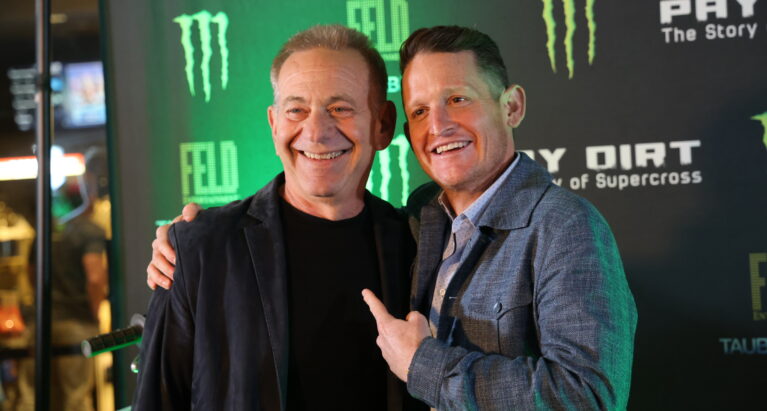








Be the first to comment...